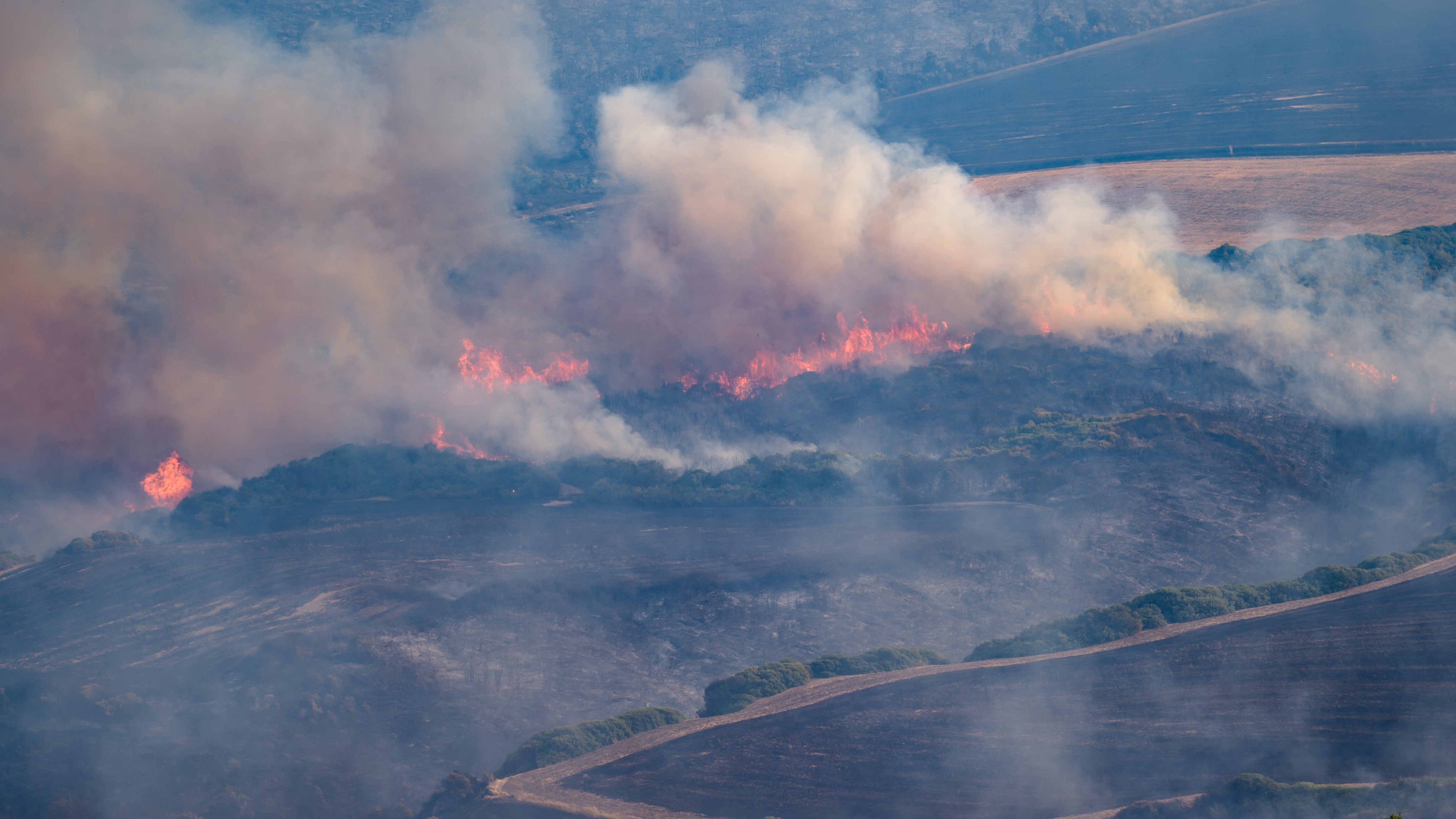Highest recorded temperature in European history reported in Italy
Temperatures across the region are unprecedented, according to scientists.

Italy may have just recorded the hottest temperature in European history, according to preliminary reports from local meteorologists. And perhaps fittingly, the culprit of the heat wave has been named Lucifer.
Syracuse, a city on the coast of the Italian island of Sicily, registered temperatures of 119.85 degrees Fahrenheit (48.8 degrees Celsius) on Wednesday (Aug. 11). If the measurement is confirmed by the World Meteorological Organization, it will break the previous European record of 118.4 F (48 C) recorded in Athens in 1977.
The measurement comes amid a scorching heat wave that has baked the Medditeranean for more than a week, feeding devastating wildfires that have destroyed homes and claimed lives in Italy, Greece, Algeria and Turkey, according to the Associated Press.
Related: NASA images show California's largest wildfire from space
Syracuse Mayor Francesco Italia told the newspaper La Repubblica that the potential temperature record "worries us." "We are devastated by the fires. And our ecosystem — one of the richest and most precious in Europe — is at risk," Italia said. "We are in full emergency."
Firefighters have dealt with 44,442 wildfires since June 15, according to Italian government statistics — a major increase on the 26,158 reported over all of last summer. Italy's fire and rescue service wrote on Twitter that its firefighters had battled with more than 500 blazes in Sicily and Calabria on Wednesday night to Thursday morning (Aug. 12) alone, using five planes to douse the flames from above.

Four deaths have been associated with the fires in the past week in southern Italy, including a 77-year-old shepherd who was found dead in the Calabria region (the toe of Italy's "boot"). The man was reportedly seeking refuge in a farmhouse with his flock when he died, according to the Associated Press.
Sign up for the Live Science daily newsletter now
Get the world’s most fascinating discoveries delivered straight to your inbox.
"Yet another victim of the fires. We are losing our history, our identity is turning to ashes, our soul is burning," Giuseppe Falcomatà, the mayor of the Calabrian province Reggio Calabria, wrote on Facebook in response to the news.
According to meteorologists, the heat wave in southern Italy is caused by an anticyclone — a region of high pressure that causes the air trapped within it to sink — which formed over North Africa. The anticyclone has been nicknamed Lucifer by Italian media.
Lucifer is projected to continue moving northward across Italy, creating blistering conditions as it advances toward Rome.

Wildfires have ripped through other parts of southern Europe and North Africa this week, destroying many villages in Greece and forcing thousands to evacuate. Algeria's president declared a three-day mourning period yesterday (Aug. 11) after the death toll from forest fires climbed to 65. In Turkey, a forest fire that approached a coal-fired power plant on the southwest coast also prompted an evacuation, Live Science previously reported.
On Monday (Aug. 9), a landmark report from the U.N.'s Intergovernmental Panel on Climate Change (IPCC) issued a stark warning that Earth was expected to reach the critical threshold of 1.5 C (2.7 F) warming due to climate change within the next 20 years.
The report, which U.N. Secretary-General António Guterres described as a "code red for humanity," warns that increasingly extreme heat waves, droughts and floods will become more common as the planet warms.
"The alarm bells are deafening, and the evidence is irrefutable: Greenhouse gas emissions from fossil fuel burning and deforestation are choking our planet and putting billions of people at immediate risk," Guterres said in a statement. "If we combine forces now, we can avert climate catastrophe. But … there is no time for delay and no room for excuses."
Originally published on Live Science.

Ben Turner is a U.K. based staff writer at Live Science. He covers physics and astronomy, among other topics like tech and climate change. He graduated from University College London with a degree in particle physics before training as a journalist. When he's not writing, Ben enjoys reading literature, playing the guitar and embarrassing himself with chess.









